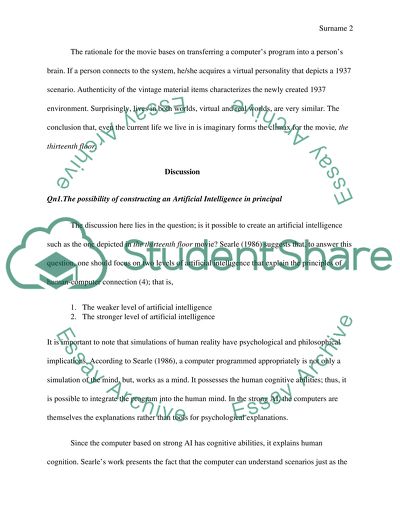Cite this document
(“Philosophical Interpretation of the Movie: The Thirteenth Floor Essay”, n.d.)
Retrieved from https://studentshare.org/philosophy/1448454-would-it-be-possible-in-principle-to-construct-an
Retrieved from https://studentshare.org/philosophy/1448454-would-it-be-possible-in-principle-to-construct-an
(Philosophical Interpretation of the Movie: The Thirteenth Floor Essay)
https://studentshare.org/philosophy/1448454-would-it-be-possible-in-principle-to-construct-an.
https://studentshare.org/philosophy/1448454-would-it-be-possible-in-principle-to-construct-an.
“Philosophical Interpretation of the Movie: The Thirteenth Floor Essay”, n.d. https://studentshare.org/philosophy/1448454-would-it-be-possible-in-principle-to-construct-an.


